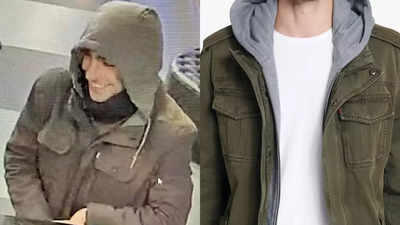
Arrest v Luigi Nicolas Mangionesuspect in the murder of UnitedHealthcare CEO Brian Thompson, has sparked a strange phenomenon: a spike in sales of the jacket allegedly worn by the shooter.
Thompson was shot and killed outside the New York Hilton Midtown Hotel on December 4, 2024. by a masked assailant who fled the scene on a bicycle, which was the cause of a multi-day manhunt. Surveillance video shows a distinctive jacket worn by the shooter, which the online community has speculated is a Levi’s Sherpa trucker jacket with two pockets and a hood. While debate over the exact design continues, the jacket’s popularity has skyrocketed.

According to Macy’s item tracker (via Complex ), more than 700 similar jackets were sold in two days, turning a somber piece of evidence into an unexpected fashion trend. Reddit forums and social media platforms have seen people imitating Mangione’s appearance, with some considering him a “hero” due to his grievances with the healthcare industry. In a macabre twist, Washington Square Park even hosted a “double shooter contest.”
Authorities arrested Mangione, 26, on Monday at a McDonald’s in Altoona, Pennsylvania, after an employee recognized him. A former Ivy League graduate and intern at Firaxis Games, Mangione was found with a 3D-printed “ghost gun,” hollow-point bullets, a loaded Glock magazine, and a manifesto condemning the U.S. health care system.

Mangione now faces multiple charges, including murder and weapons charges, and is expected to be extradited to New York for trial. UnitedHealth Group released a statement saying it hoped the arrest would bring comfort to those mourning Thompson’s death.
As the case unfolds, the unexpected fascination with Mangione’s jacket reveals a disturbing cultural response to the tragic event. The case has raised concerns about how society responds to acts of violence, with some experts warning against glorifying the perpetrators or trivializing such events. The fascination with Mangione’s jacket highlights the troubling intersection of criminal notoriety and consumer culture, sparking broader debates about the ethics of profiting from tragedy.










